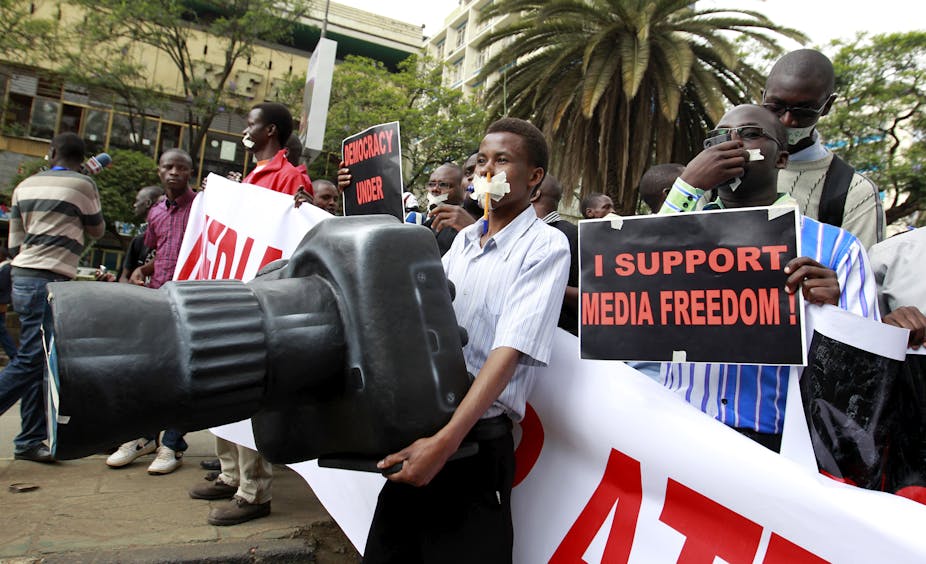
Kenya has dropped four places in the World Press Freedom Index undoing the gains made in previous years in realising media freedom as per the dictates of Kenyan constitution.
A 2019 study published by ‘Reporters Without Borders’ paints a gloomy picture of how Kenyan media freedom has been deteriorating in the past 12 months.
The study indicates that Kenya now sits at position 100 out of 179 countries with a score of 32.44. Last year, the country was at position 96, out of 180 with a score of 30.82.
As Kenya rose from the shackles of tribal divisions fueled by political differences at the start of 2018; Kenyan media seem to have been suppressed and intimidated, the study reveals.
“During election campaigns, the media are routinely subjected to physical attacks by the security forces and the public, as well as to threats and intimidation by politicians, confiscation of equipment, and censorship of journalistic content,” it partially reads.
The country returned to normalcy after fiercely contested 2017 General Election. Such was inspired by the famous handshake by President Uhuru Kenyatta and ODM leader Raila Odinga on March 9, 2019.

However, it says that the events of post-election characterised by media shutdown may have jeopardised Kenya’s performance on the global index.
It notes: “Journalists can pay dearly for covering opposition events or for portraying President Uhuru Kenyatta’s party and its flaws in a negative light. Four commercial TV channels were shut down at the start of 2018 for defying the president’s ban on live coverage of opposition leader Raila Odinga’s mock inauguration as president.”
The dipping standards of media freedom may not only be attributed to political interference. The study faults the Security Laws Amendment Act of 2014, where a new law on online content fronts heavy fines and prison sentences against would be defamation offenders, clumping down even further on media freedom.
It further adds that private media have other impediments worsening the situation such as self-censorship and financial problems.
Meanwhile, Norway tops the list as the world’s leading respecter of media freedom. North Korea on the other hand placed last at position 179 as the most hostile country for journalists.